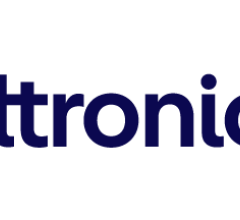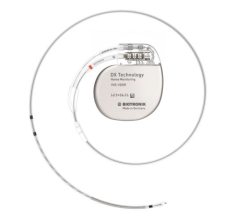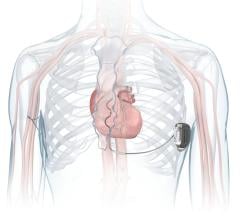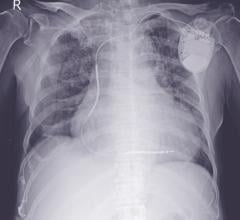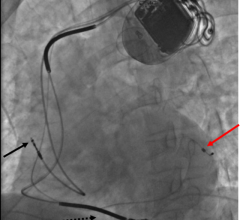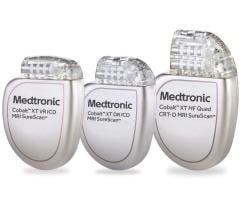In a giant leap forward in ICD patient safety, the American College of Cardiology Foundation (ACCF), in conjunction with the Heart Rhythm Society (HRS), established the National Cardiovascular Data Registry's national ICD Registry in the fall of 2005 to measure ICD patient outcomes and track patient trends. The Registry serves to provide its members with the most up-to-date and comprehensive ICD-related statistics at the time of device implantation from which informed patient care decisions could be made.
"In January 2005, Medicare [CMS] expanded their ICD coverage based on the results of three major randomized controlled trials," explained Stephen Hammill, M.D., chair of the National ICD Registry Working Group and chair of the ICD Registry Steering Committee. "However, there were three patient populations: (1.) patients with an ejection fraction between 31-35 percent, (2.) patients with a diagnosis of nonischemic cardiomyopathy of less than nine months duration and (3.) patients who are receiving a resynchronization device to treat Class IV heart failure, that Medicare felt required more data. The ICD Registry was designed to collect the additional data and in the process, help determine if the trial findings can be applied to the general population.
"CMS will use the Registry data to determine if the ICD implantation was appropriate for each Medicare beneficiary. In addition, the Registry data will be used to assess different outcome measures, such as in-hospital complications, length of stay and device implant indications for each hospital and provider," said Dr. Hammill.
Data requirements
"The data elements and definitions for the Registry were derived from an expert panel of electrophysiologists, heart failure specialists and data registry experts, which was assembled by the ACC and HRS," said Christine Lang, RN, MSN, associate director, ICD Registry NCDR, American College of Cardiology Foundation.
Information submitted to the Registry is "scrubbed" by the Data Quality Reporting (DQR) process to ensure that data entry reporting is complete. In addition, data will be audited for its accuracy by a random sampling of sites and random sampling of patients. Once the data meets the completeness requirements, an Outcomes Report is generated, Lang explains.
"The Registry's first Outcomes Report will be released April 30, providing participants with their own yearly data in an aggregated form. Reports, such as the ICD Premier Report, Executive Summary and CMS Limited Report, assure hospitals that they are collecting clinically relevant and evidence-based data," said Lang. In addition, quarterly benchmarking reports let hospitals know how their individual performance and outcomes compare to peer groups and the nation.
Tracking tool
During his testimony at the recent FDA public meeting regarding the Sentinel Network - a post-market surveillance system for implanted cardiac devices - Dwight W. Reynolds, M.D., FHRS, president of the HRS, echoed the importance of the ICD Registry and its potential for future post-market surveillance.
"We recommend that the FDA strengthen its partnerships with physician associations," Dr. Reynolds told attendees in March, to develop a Sentinel Network that is linked to existing and future registries, such as the baseline ICD Registry.
In order for the ICD Registry to perform as an effective surveillance tool, Dr. Reynolds indicated that significant changes and expansion would be required, but that the HRS is committed to expand the Registry as a post-market surveillance tool and that the FDA and other stakeholders have an opportunity to contribute both resources and knowledge to achieve this end.
The Longitudinal ICD Registry, which the HRS anticipates launching with the ACC-NCDR, will track ICDs in a small population of approximately 3,500 patients over a longer period of time, thus producing valuable post-market surveillance data. Using the Longitudinal ICD Registry as a model and the aggregated data produced by the ICD Registry, Dr. Reynolds believes the FDA - along with physician associations such as the ACC and HRS - will have the tools it needs to establish an ICD Sentinel Network.
Customizable output
Currently there are over 1,400 hospitals enrolled in the Registry with 120,000 procedures in the database and the numbers are growing daily. All Medicare patients receiving an ICD for primary prevention indications are required, by federal mandate, to be registered.
According to Dr. Hammill, about 80 percent of hospitals across the country (especially larger ones) have chosen to submit data on all their ICD patients - Medicare and non-Medicare as well as primary and secondary prevention patients.
"We anticipate there will be enough data collected to satisfy Medicare's requirements in about four to five years," he said.
The Registry, however, will continue to expand and grow indefinitely.
"By virtue of their participation in the ICD Registry, providers are in control of how useful the registry data will be to them and whether the goal of quality improvements will be achieved," stressed Dr. Hammill.
Feature | May 07, 2007 | Maureen Leahy
The ICD Registry Today, Valuable Data Tomorrow
National registry combines statistics, trends and more into comprehensive tool designed to improve ICD patient outcomes.


 January 13, 2026
January 13, 2026 

